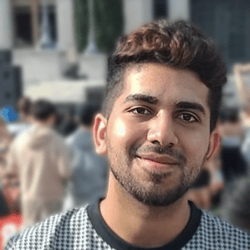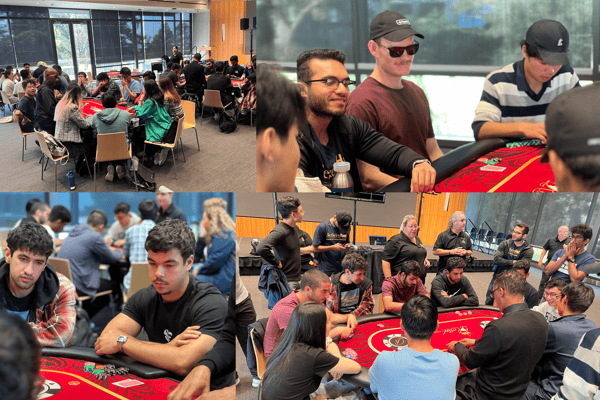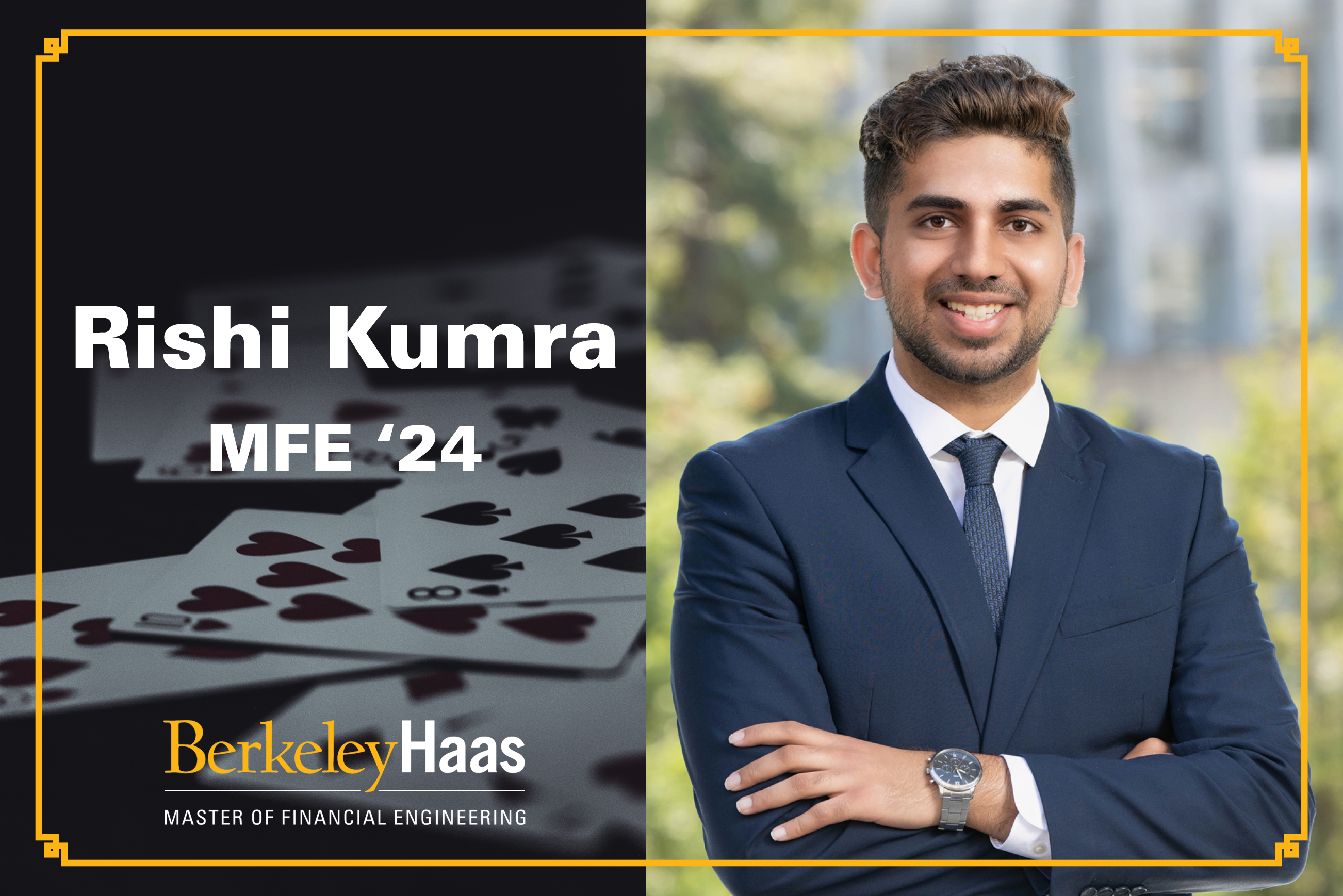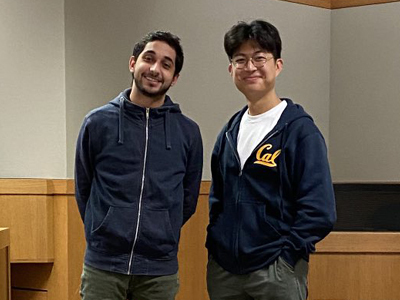 Poker, often perceived as a mere card game played in casinos by most, holds a different significance in the realm of quantitative trading. As a student pursuing a Master of Financial Engineering (MFE), Rishi Kumra discerns the striking parallels between poker and quantitative finance. His enthusiasm for the game goes beyond the excitement of playing; it stems from his realization that poker possesses hidden depths.
Poker, often perceived as a mere card game played in casinos by most, holds a different significance in the realm of quantitative trading. As a student pursuing a Master of Financial Engineering (MFE), Rishi Kumra discerns the striking parallels between poker and quantitative finance. His enthusiasm for the game goes beyond the excitement of playing; it stems from his realization that poker possesses hidden depths.
"The green book for quantitative finance includes interview questions on calculating conditional probabilities for poker,” Rishi explained. Furthermore, quantitative finance entails making well-informed decisions grounded in expected value and variance, mirroring the way a poker player calculates the odds of winning a hand. However, Rishi recognized that the true key to maximizing winnings in both poker and trading lies in comprehending when to deviate from the optimal path, guided by cues from fellow players, the number of players remaining in the pot, and the size of their stacks. "This approach introduces more variance,” Rishi noted, “[but] when managed effectively, it yields significantly superior outcomes than simply adhering to game theory optimal play."
Rishi recently orchestrated a poker tournament that brought together not only MFE students but also undergraduates and graduate students spanning departments from EECS, Math, Computer Science, Bio, Data Science, and Business. The interactions and networking that took place at the event, Rishi remarked, “productive discussions were held by everyone, providing an opportunity for all to enhance their poker skills.”
 During the tournament, Rishi secured 2nd place overall by employing a series of strategies. His first strategy centered on bankroll management. “If my stack dropped below 7 big blinds,” he explained, “I would be inclined to fold until I received a strong enough hand to go all-in.”
During the tournament, Rishi secured 2nd place overall by employing a series of strategies. His first strategy centered on bankroll management. “If my stack dropped below 7 big blinds,” he explained, “I would be inclined to fold until I received a strong enough hand to go all-in.”
His second strategy involved playing cautiously in the early stages of the game. Rishi engaged in most pre-flop hands, at the start, but would fold often if he didn't hit a strong hand, strategically gathering information about his opponents' playing styles while minimizing losses. As the game progressed, he also benefited from a stroke of luck with some favorable hands, significantly boosting his chip count after the initial hour.
The third and final strategy involved adopting a more aggressive approach in the later stages of the tournament, leveraging a substantial stack. As the competition progressed and blinds escalated, Rishi capitalized on his chip advantage. He exploited his opponents' reluctance to take risks and seized opportunities to amass chips.
Rishi Kumra's accomplishments in poker and his passion for quantitative finance spotlight the intricate interplay between these two domains. Both realms demand skill, strategy, and the ability to make calculated decisions amid uncertainty. As he continues to navigate these parallel worlds, Rishi stands as an inspiring example of how a passion for one discipline can enrich comprehension and success in another.








